Fermented foods / Probiotics
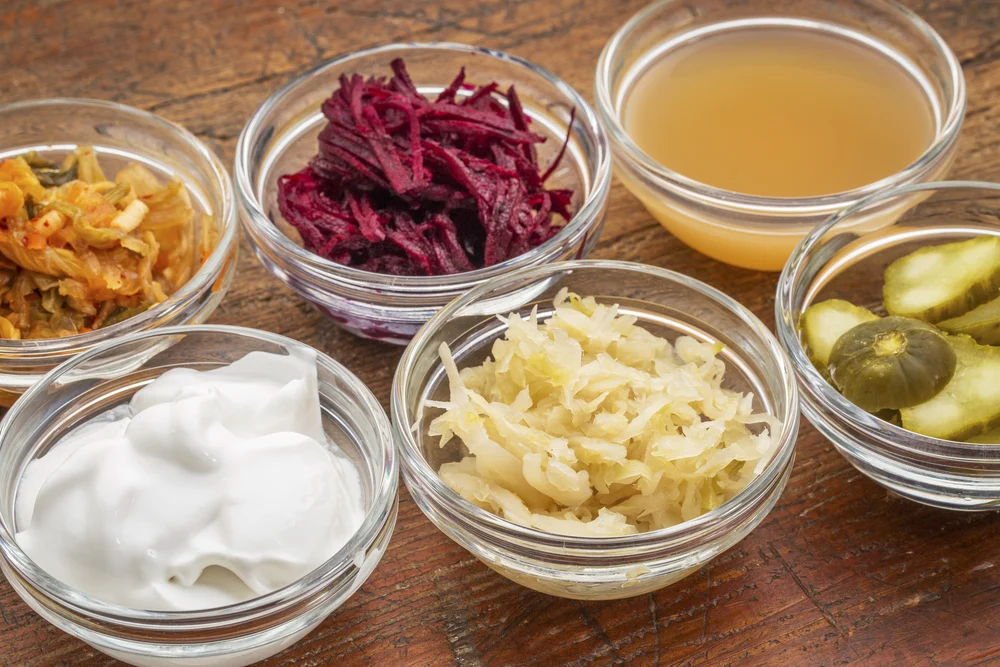
I have a few friends that are probably rolling their eyes way back in their heads right now because they’ve heard this from me so many times – but guys – this can be a game changer for your health. If you aren’t already on the probiotic ‘train’, hop on. It’s a WAY smoother ride.
Research continues to illustrate the extensive and important bidirectional relationship between gut and immune health. 80% of our immune system is built in the gut and this is why it is so incredibly important that we have a healthy environment there in which our immune systems can grow. In functional medicine, gut health is an important pillar of therapeutic approaches for the treatment and prevention of chronic disease. Basically, the microbial ecosystem in the gut has to be healthy in order for you to be healthy.
Addressing dysbiosis and modulating the gut microbial landscape through nutritional support may include prebiotic and fermented foods in addition to appropriate probiotic supplementation. These are all critical to protecting and rebuilding the gut. They compete with bad gut bugs and yeast, modulate intestinal function, and are essential to changing and improving immune function. They are also anti-inflammatory, they help us break down food, and they build nutrients.
Deregulated innate immunity is increasingly common and has been shown to contribute to a wide range of diseases, including:
- Intestinal diseases such as irritable bowel syndrome and other chronic inflammatory intestinal diseases.
- Autoimmune diseases, including type 1 diabetes and rheumatoid arthritis.
- Neurodegenerative disorders such as Alzheimer’s disease, amyotrophic lateral sclerosis, Parkinson’s disease, and Huntington’s disease.
- Chronic obstructive pulmonary disease.
This is why ‘unrolling’ your eyes could be a good idea! Let’s power up our immune systems to stave off chronic illnesses! It doesn’t have to be a grandiose lifestyle or financial move – you can start with baby steps by eating a few pickles or other fermented foods a week and working your way up. Your future self will thank you.
Curcumin
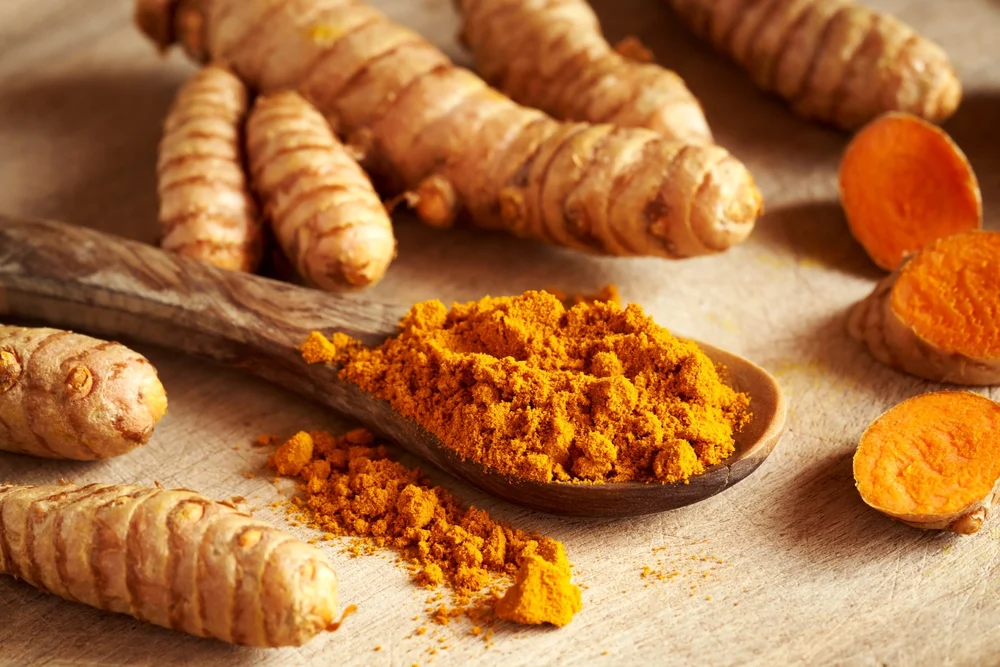
The spice, turmeric, and its active ingredient curcumin, is one of the most effective nutritional supplements in existence. It is anti-inflammatory, a powerful antioxidant, boosts brain derived neurotrophic factor, lowers risk of heart disease, can help prevent cancer, is useful in treating alzheimers and helps to fight age related chronic disease. Research has also shown curcumin to be helpful at relieving many inflammation-based health issues including rheumatoid arthritis and automimmune conditions.
For a deeper dive into this power source, click here. https://divinitynutra.com/health/turmeric-benefits/
Liver
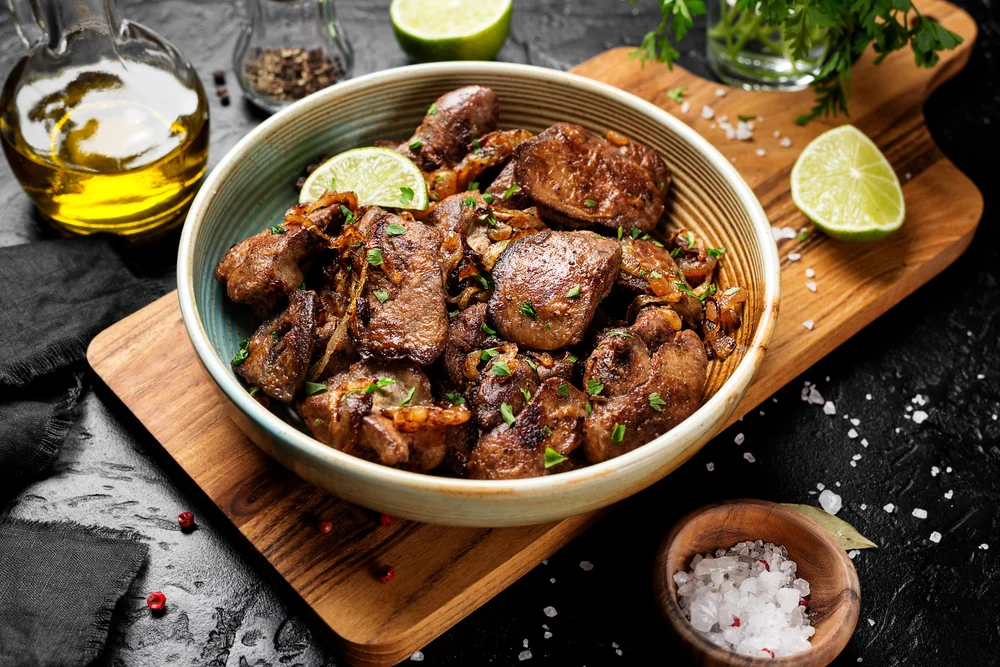
I know you are saying, “Ew”, right? Well just wait right there. Liver is one of the most nutritionally dense foods on the planet. People often look to fruits and vegetables for vitamins and minerals, but liver far surpasses both of them in terms of nutrient content. For most of human history, we naturally consumed the things we knew we needed for strength, health and happiness. In the modern world, we unknowingly struggle to fulfill our nutritional needs that support and sustain a vibrant, disease-free life. As a result, we are now part of a world where chronic diseases and nutrient insufficiencies are the new normal. Liver was the first multi-vitamin and for a good reason. Eating it just once a week would uplevel your game and greatly support your health.
There are some amazing recipes out there like this one: https://paleochef.com/2014/05/30/bangin-liver-recipe/
But if the taste of liver isn’t for you, you can also take it in capsule form. Here are two incredible companies that I trust:
Ancestral Supplements (https://ancestralsupplements.com/collections/shop/products/grassfed-beef-liver-supplement-1) and
Paleo Valley (https://paleovalley.com/shop/grass-fed-organ-complex)
Spirulina
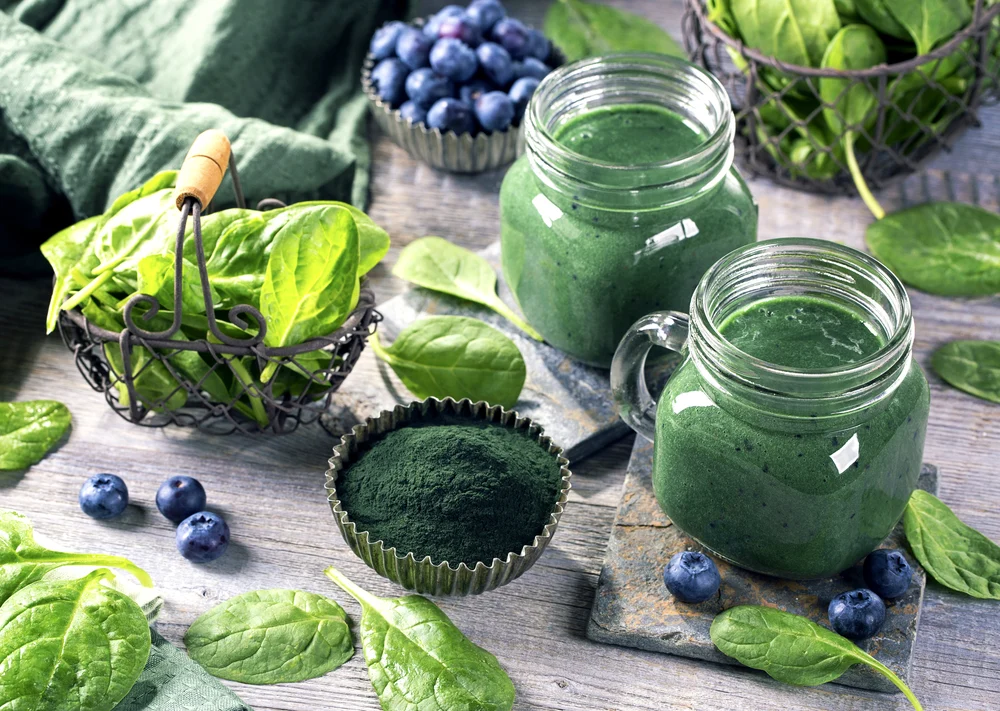
Spirulina is a type of algae that has been recognized as one of the world’s healthiest foods. It has a laundry list of research-backed health benefits and has been endorsed by NASA and the United Nations as the most nutritionally dense food in the world. Scientific studies have shown that its nutrients improve immune health, gut health, energy, longevity and nutrition.
Scientists have found that Spirulina has “immune-stimulant activities. It is able to increase the production and activity of bone marrow stem cells, macrophages, and T-cells. It improves cell nucleus enzyme activity, and DNA repair capacity. As such, it has a role in cancer treatment and inhibits HIV-1 replication in human-derived T-cell lines” (Ramasubramania Raja, 2016). Spirulina contains functional compounds, such as phenolics, phycocyanins, and polysaccharides, with antioxidant, anti-inflammatory, and immunostimulating effects. In the packaged, processed foods world in which we live, adding spirulina to your life would do your body a world of good.
More information on spirulina can be found in this scientific article in the National Library of Medicine:
https://www.ncbi.nlm.nih.gov/pmc/articles/PMC5274660/
Kale
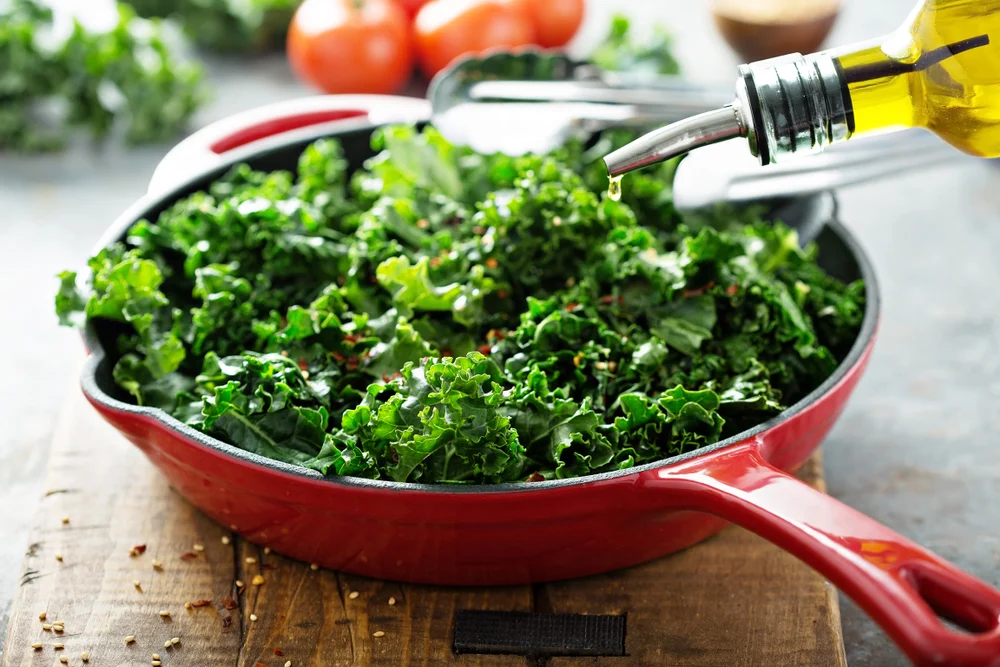
The benefits of kale have been hyped up for the last decade or so and it has made its way onto the menu of every healthfood hangout from Munich to Malibu and in every shopping cart of those aspiring to live their best nutritional life, me included. But heavy science stands firm that of all the green superfoods, kale is king.
With many bioactive compounds, such as glucosinolates, vitamins C, K, E, cholesterol-lowering substances, and carotenoids like lutein, zeaxanthin, and beta-carotene, kale has powerful medicinal properties. A single cup contains 206% of the daily recommendation of vitamin A, 684% of vitamin K and 134% of vitamin C (17 times more than carrots!), as well as high levels of potassium, fiber, antioxidants, calcium and chlorophyll, iron and the antioxidant alpha-lipoic acid. The list goes on, but I think you get the idea. And the good news is that it is kale season, so go on, get crazy!
Adaptogenic Mushrooms
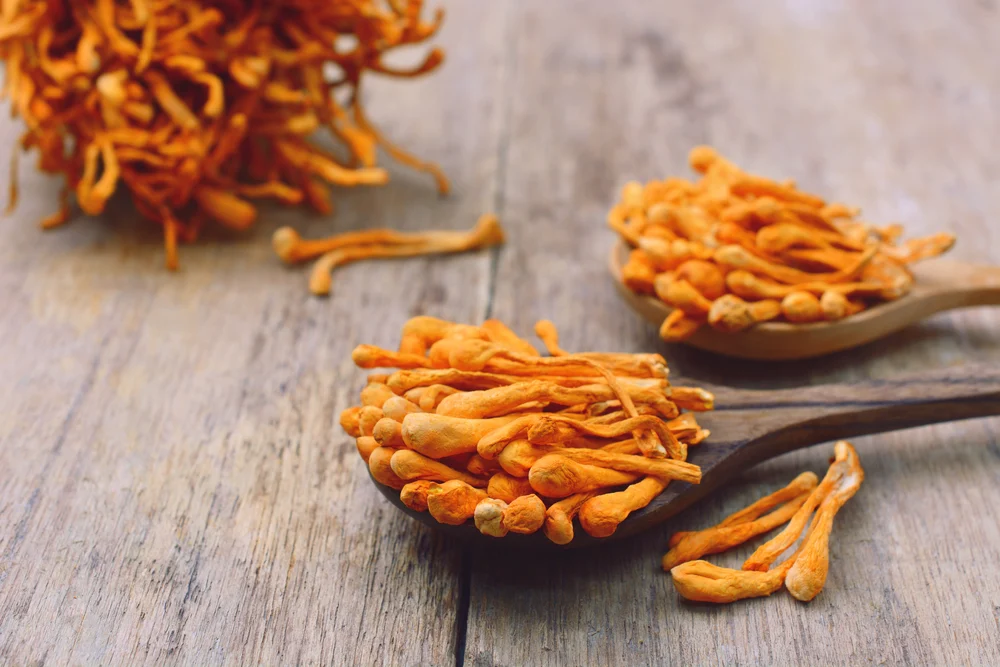
My excitement about all things adaptogenic began a few years ago during one of my ‘deep-dives’. The more I kept learning about adaptogenic mushrooms, the more I began to realize I had found a vital piece of my wellness puzzle that had been missing. So I decided to add it to my borderline superfluous health obsession cabinet. I was convinced that my new shrooms were going to make me a more powerful, productive, calmer and immuno-resilient person. Spoiler alert: They have!
TO FIND OUT MORE ABOUT THESE MAGICAL MUSHROOMS CLICK HERE
Fatty Fish / Omega 3

Omega-3 fatty acids are an essential fat that the body cannot make on its own. Fish such as herring, tuna, sardines, and mackerel are the best food sources, though some plants, seeds (flax and chia seeds) and walnuts also contain it. They’re key to the structure of every cell wall you have. Our western diet has replaced a lot of Omega 3 fatty acids with other fats such as Omega 6 fats and research shows that this distorted ratio may be contributing to many diseases. They’re also an energy source and help keep your heart, lungs, blood vessels, and immune system working the way they should. Not only does your body need these fatty acids to function, they also deliver some big health benefits.
Research shows that they:
- Reduce risk of cardiovascular disease
- Reduce risk of death if you have cardiovascular disease
- Reduce risk of sudden cardiac death caused by an abnormal heart rhythm
- Reduce risk of blood clots
- Keep the lining of the arteries smooth and free of damage, which helps
- Keep plaque from forming in the arteries
- Lowers triglyceride levels by slowing the rate they form in the liver. High levels of triglycerides in the blood increase the risk of heart disease
- Decrease inflammation. Omega-3 fatty acids slow production of substances that are released during the inflammatory response
To read more about the importance of Omega 3 fatty acids, there is a wonderful article written by the Harvard School of Public Health that you can find here: https://www.hsph.harvard.edu/nutritionsource/what-should-you-eat/fats-and-cholesterol/types-of-fat/omega-3-fats/
As with all health-related information, usage and effects may vary from person to person. Experts recommend consulting with your physician before taking any kind of supplements.
